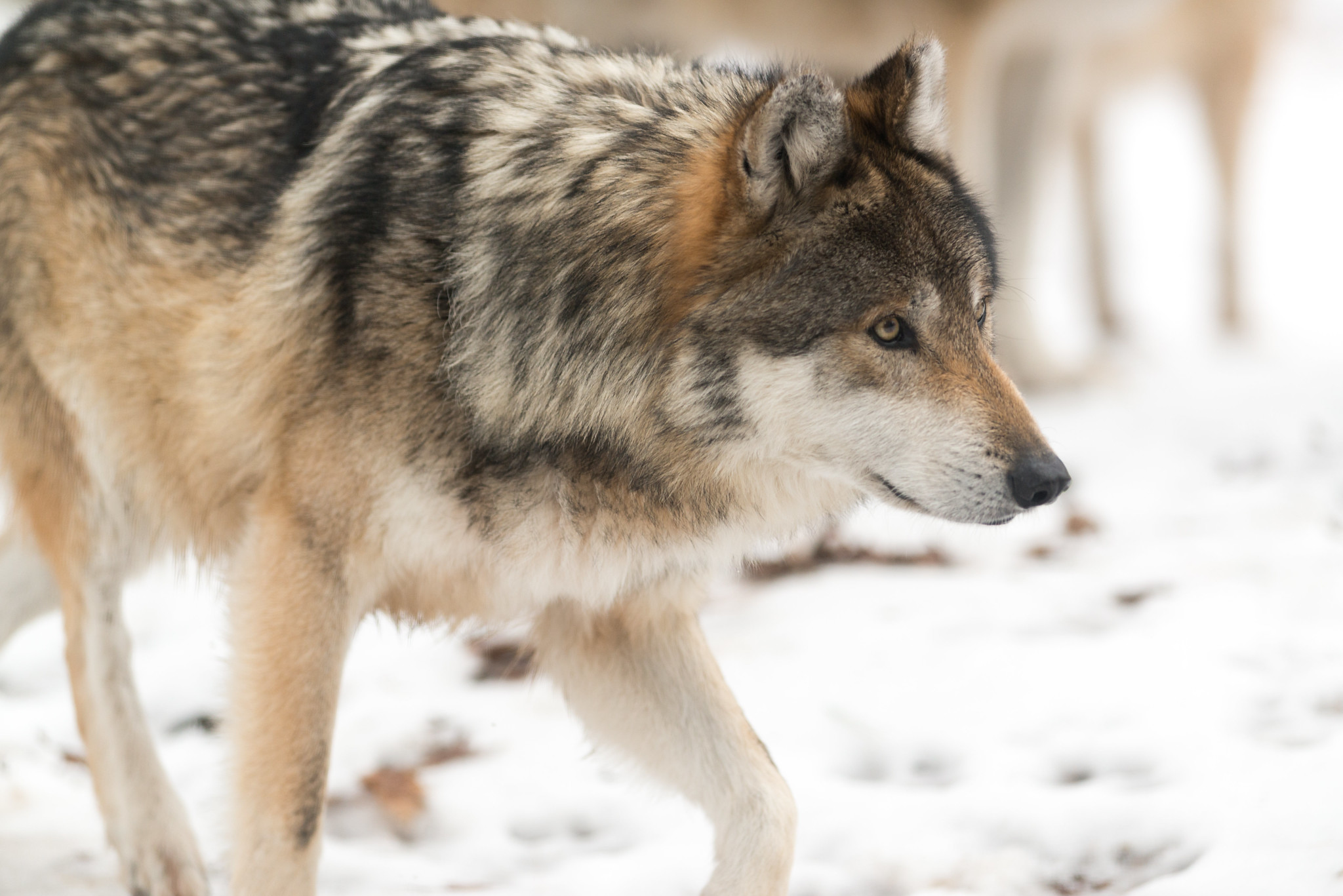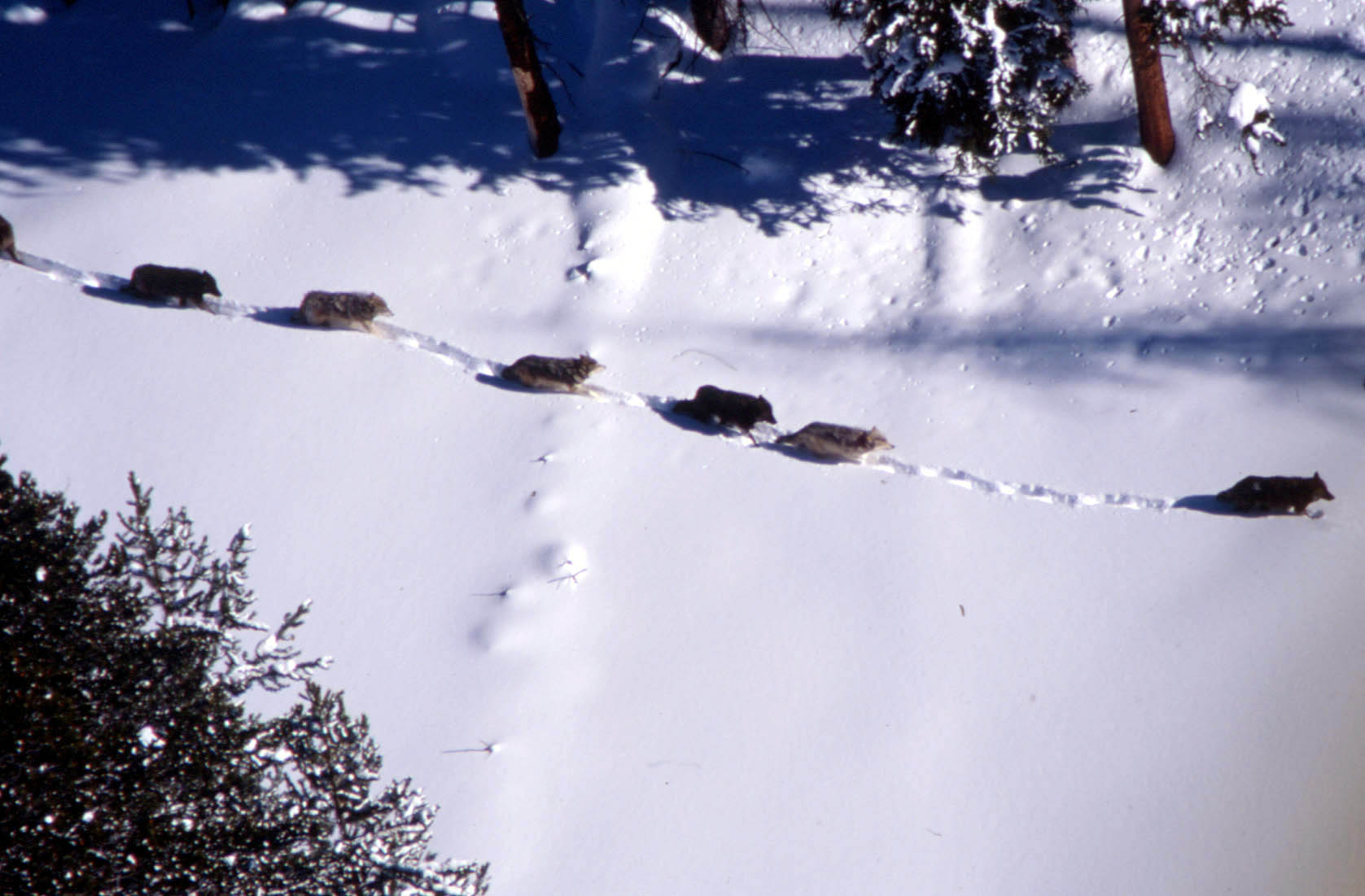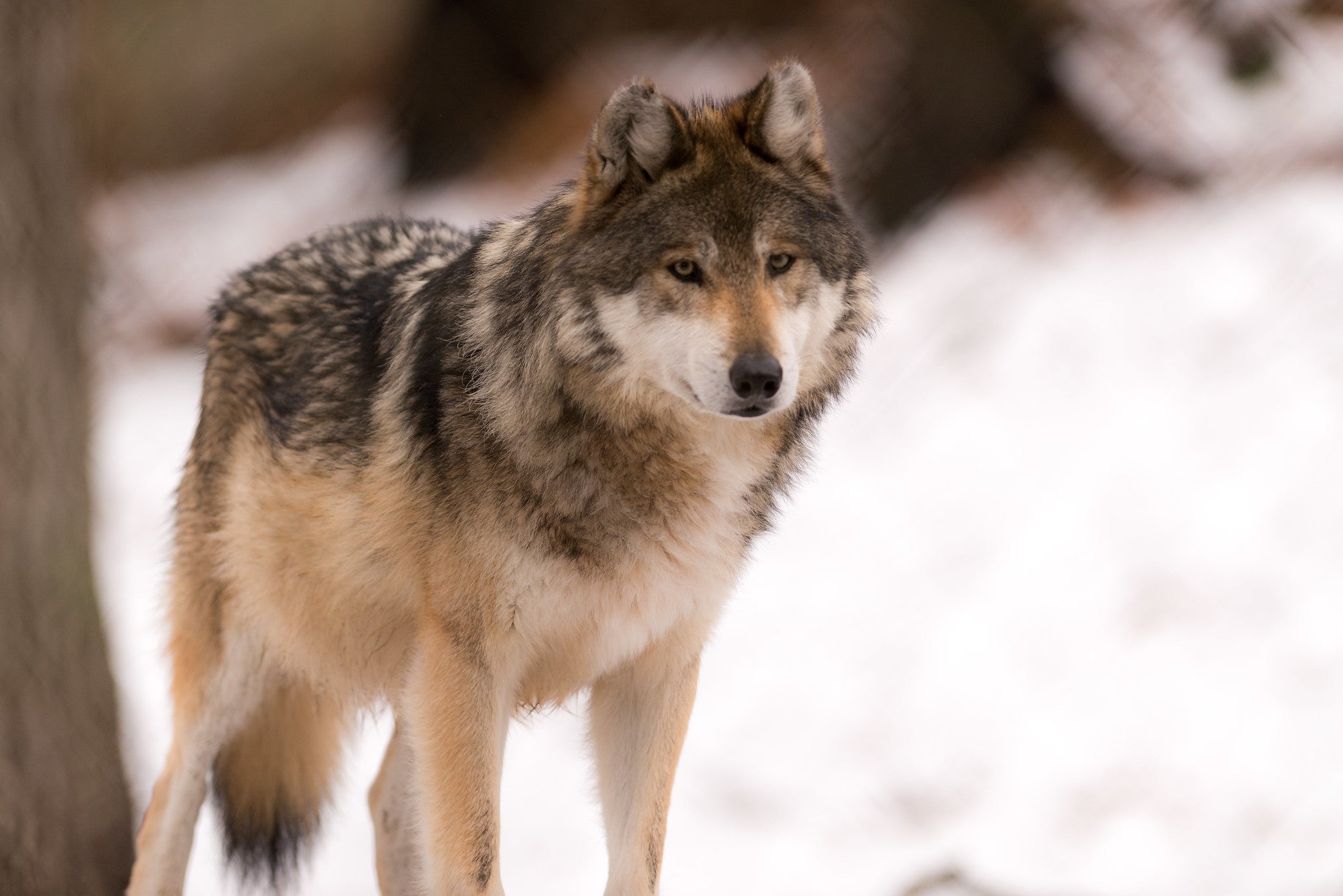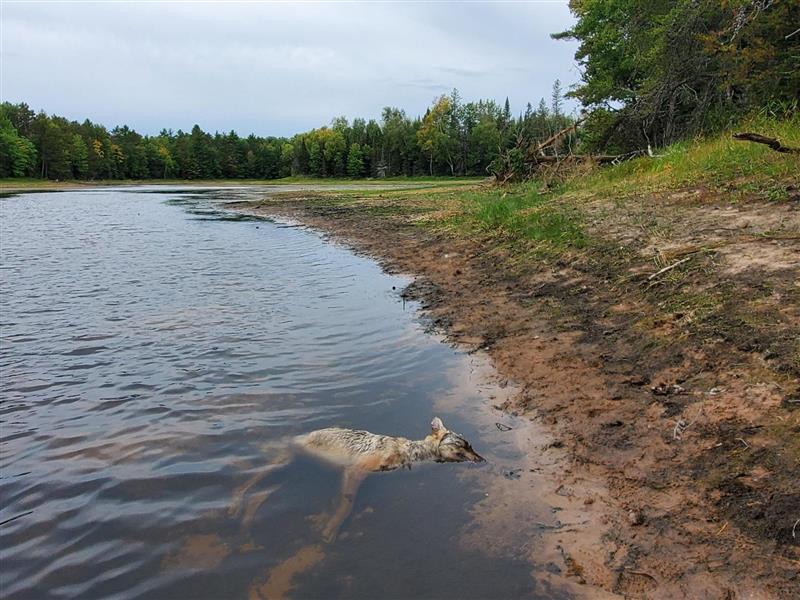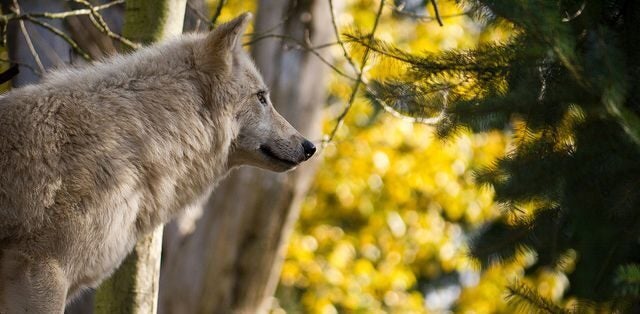Wisconsin’s wolf hunt will move forward Monday after an appeals court ruling Friday.
A three-judge panel dismissed an appeal by the Wisconsin Department of Natural Resources seeking to put a Jefferson County judge’s ruling on hold that ordered the state’s wolf hunt to resume this month.
“This court lacks jurisdiction over a direct appeal at this time,” the court ruled.
Stay informed on the latest news
Sign up for WPR’s email newsletter.
The decision comes as the agency has already been accepting applications for up to 4,000 permits that may be issued to hunters for the wolf harvest. The Natural Resources Board unanimously approved a quota of 200 wolves this week, and the hunt is set to be held next week after a drawing of winners Monday.
A DNR spokesperson said the agency’s legal team is reviewing the decision and declined to comment further.
Jefferson County Judge Bennett Brantmeier sided with Kansas-based group Hunter Nation after a conservative advocacy group filed a lawsuit on behalf of the hunting organization that sought to force the DNR to resume the hunt this month.
“I think this is a historic victory not only for hunters in Wisconsin, but re-establishing the rule of law as we know it to make sure that when state statute is very clear that this is something that cannot be denied by a governor, by a politician, by an agency,” said Hunter Nation CEO Luke Hilgemann.
The ruling is the latest development in a contentious debate over whether Wisconsin should hold a wolf hunt this winter following the Trump administration’s decision to remove the animal from the endangered species list. The wolf’s delisting took effect across most of the nation last month.
The number of wolves in Wisconsin has grown from just 25 in 1980 to 1,195 today, according to the DNR. Hunters have argued it’s their statutory right to hunt wolves in Wisconsin when the animal is delisted. Under Wisconsin law, the DNR is required to hold a single wolf hunting and trapping season from Oct. 15 through February when the animal is not under federal protection.
Hunters have cited concerns that they may have a limited window to harvest wolves if President Joe Biden’s administration restores federal protections for the animal after he issued an executive order to review decisions made by the Trump administration, including the wolf’s delisting.
Tribal and animal rights groups have opposed holding a wolf hunt now, in the middle of the animal’s breeding season. They fear the wolf hunt will lead to senseless killing of the animals for sport.
Laura Smythe, staff attorney for the Humane Society of the United States, said it’s disappointing the court decided not to address the merits of the case.
“It’s an issue of extreme public importance and what they have done is they have forced the DNR to open a scientifically unjustifiable hunt without any meaningful public and tribal participation,” said Smythe.
The Humane Society is among environmental and wildlife groups that have sued to restore protections for the wolf. They argue the U.S. Fish and Wildlife Service disregarded the best available science that shows wolves haven’t recovered to their historic range. Smythe added that the DNR rushed to develop a harvest quota for the hunt and highlighted that the state’s wolf management plan hasn’t been updated in years. The current plan, which was last revised in 2007, set a goal of 350 wolves statewide based on population projections at the time.
Tribes have also said the DNR has not followed through on its obligation to meaningfully consult with them as part of a federal court ruling known as the Voigt Decision that affirmed their federal treaty rights. As part of that 1983 ruling, the state is required to consult with tribes on natural resource management, which includes wolf management.
Peter David, wildlife biologist with the Great Lakes Indian Fish and Wildlife Commission, said the court’s ruling was a tremendous disappointment.
“This hunt is not well-thought-out, well-planned, totally inadequate consultation with the tribes,” said David. “And maybe the biggest concern of all is that this season is not so much a hunting season as it is a killing season. No justification, really, was given for what was the legitimate purpose other than killing wolves.”
Hunters, farmers and pet owners have urged lawmakers to delist the gray wolf as they’ve lost animals or pets from wolf encounters. Last year, hunters and farmers reported 86 confirmed or probable instances of wolf depredation, according to DNR data. The DNR has provided more than $2.7 million in damage payments to hunters and livestock owners over the last three decades.
Wisconsin hunters killed 528 wolves in the three seasons a hunt was held in the state before the animal was placed back on the endangered species list.
Wisconsin Public Radio, © Copyright 2025, Board of Regents of the University of Wisconsin System and Wisconsin Educational Communications Board.
